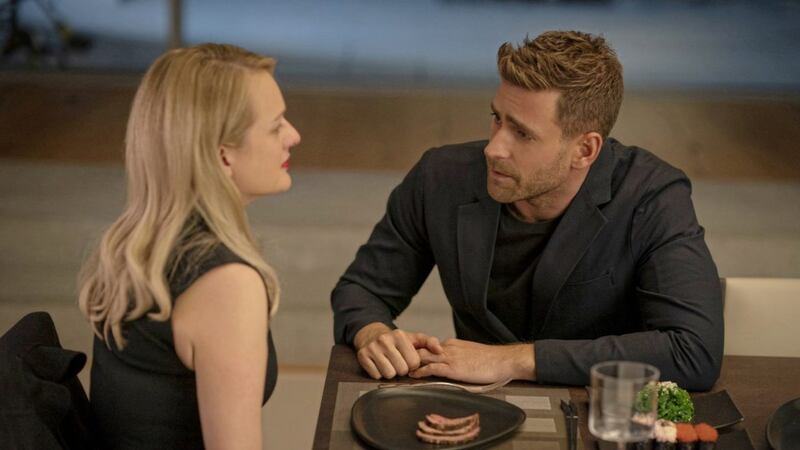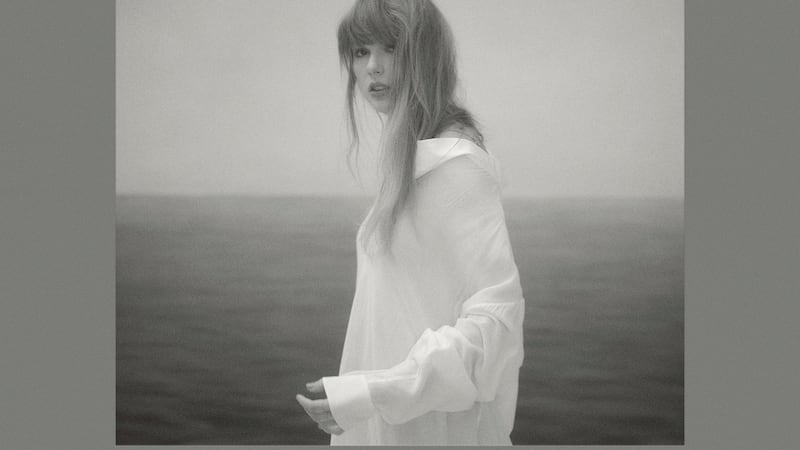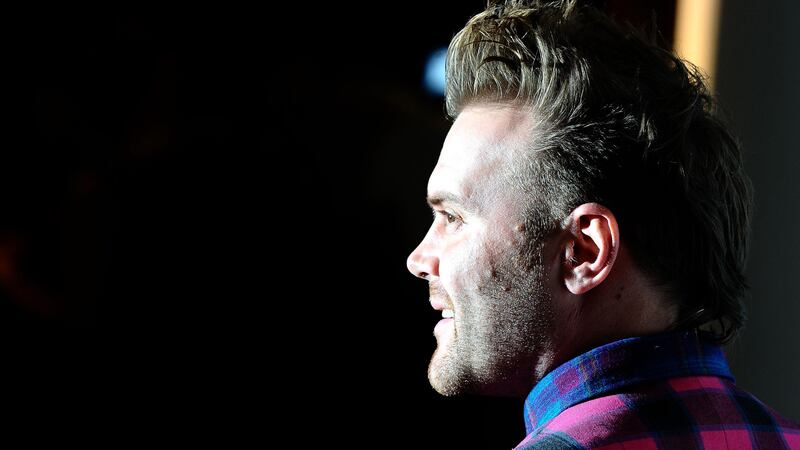NOT many celebrities would take the time to fix a journalist's hair at the start of an interview. But, just before the cameras start rolling, Elisabeth Moss gets up from her chair, and hurries over.
"You don't mind, do you?" she asks, putting a strand that was awkwardly sticking out of my headband back in its right place. "That's better!"
It sets the tone for how cool, relaxed and fun LA-born Moss – star of shows such as The West Wing, Mad Men and The Handmaid's Tale – is to chat to. The 37-year-old is promoting her latest role, in horror film The Invisible Man – a modern retelling of HG Wells's classic sci-fi novel, which was first published in 1897.
She loves watching scary movies, she says excitedly. As for what she's scared of in real life, she confesses: "I don't like deep water – an aquarium tank would be my worst nightmare. I love looking at the ocean, but I don't have any desire to go in it. That's pretty much it."
"That, and camping," she adds, laughing. "I have zero interest in camping. I find it frightening. I feel like we've made developments in humanity, and there's no need to go back!"
Luckily, there's no camping involved in The Invisible Man, a terrifying tale inspired by Universal's classic Monster character (the novel was first adapted for the screen in 1933).
Moss plays Cecilia Kass, who, at the start of the film, escapes in the middle of the night from the house where she lives with her violent and controlling husband, Adrian (Oliver Jackson-Cohen).
"I felt like the first 10 pages of the film really just grabbed me in the script," Moss says of the job's appeal. "You immediately go, 'What is going on? Why is this woman escaping from this house in this way? What is she so afraid of?' It's a great set-up for a movie."
We see Cecilia go into hiding, protected by her sister Emily (Harriet Dyer), her childhood friend James (Aldis Hodge) and his teenage daughter Sydney (Storm Reid). But when Adrian – a wealthy and brilliant scientist – takes his own life and leaves Cecilia a generous portion of his vast fortune, she starts to fear his death was a hoax.
Eerie things keep happening, putting the people she loves in danger, and leaving her convinced she is being hunted by an invisible man. But no-one believes her...
The film looks at the impact of gaslighting (a form of psychological manipulation which makes someone doubt their own sanity) on Cecilia. It's essentially a story about a woman escaping domestic abuse.
Was it distressing for Moss to put herself into the headspace of her character?
"No... I always have trouble saying that because I feel like, well, it's not real. And the women who actually do go through that, actually, it's sort of disrespectful to them to be like, 'Yes, I was pretending to do it and it was difficult'. I feel like it doesn't honour them in the right way."
She adds: "I felt like my job was to be as responsible to the truth of the story as possible."
The film's writer, Aussie Leigh Whannell (who's known for his work on the Saw franchise), made sure he did lots of research into domestic abuse relationships which he then shared with Moss, and British actor Jackson-Cohen.
This isn't the first time Moss has portrayed a woman who is trapped in an awful, scary situation.
In The Handmaid's Tale – the TV series based on Margaret Atwood's novel – she plays June, a woman forced into sexual servitude to repopulate a devastated world. It's set in a dystopian society where women are treated as property of the state, and is extremely difficult to watch at times.
"I guess, for me as an actor, I find conflict to be challenging, I find drama to be challenging," the star reflects. "It's true of most scripts – you don't want a script where somebody just goes through and nothing happens to them and they're happy at the beginning and they're happy at the end. You have to have conflict.
"And so, for me, that [being trapped] is something that represents conflict for a woman quite well."
She agrees that a theme The Invisible Man explores – the idea of a woman speaking up but not being believed – feels very timely.
"And also, I think that the idea of bullying – the idea of not only domestic abuse and violence but the idea of someone being bullied and not feeling safe, or feeling scared to talk about something that's been happening to them – whether it's a younger generation, or whether it's a man or a woman, I think that that's important to have as a part of the conversation."
As well as including some particularly gruesome scenes, the movie is tense from the start, yet that wasn't the atmosphere on set.
"People are having fun, and everything feels a little bit silly and there's a man in a green suit and everything seems a little bit like, 'This is never going to work!' And so, you actually are just happy to go home and have a cocktail," Moss says.
:: The Invisible Man is in cinemas now





